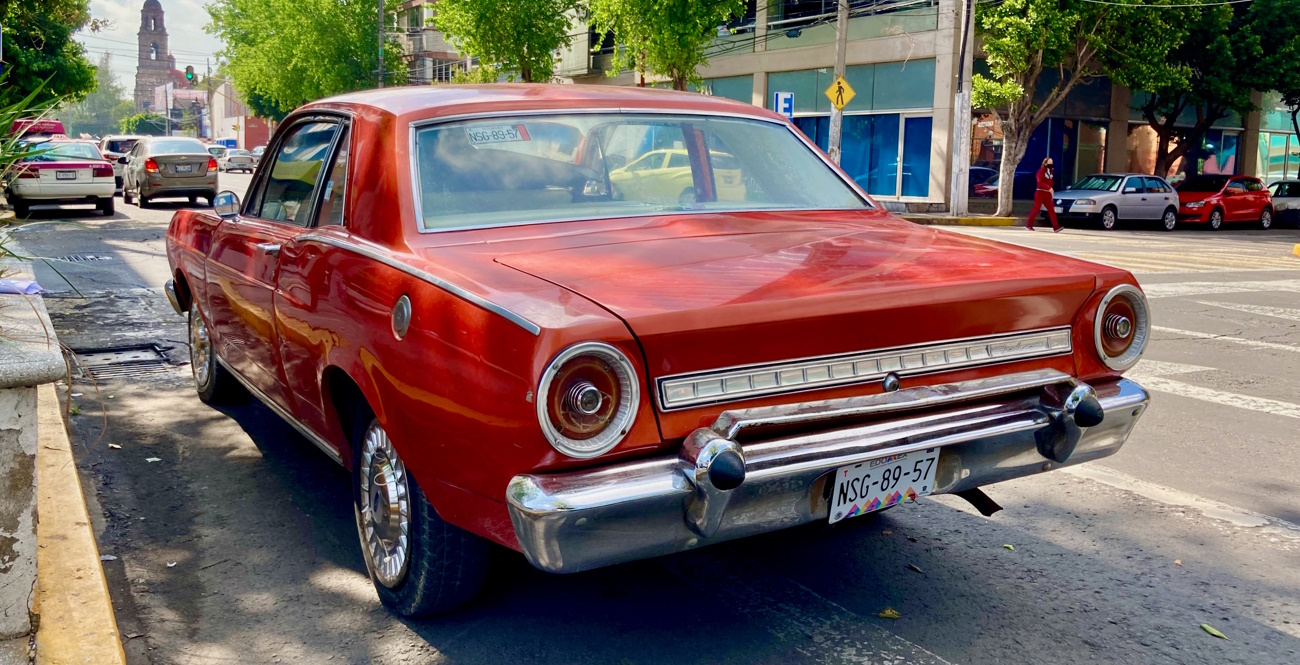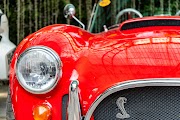by TGR Staff - 09/11/2023
In the 1960s, amidst the era of some of the largest American cars, Ford dared to go small with the Ford Falcon. The Falcon, a pioneer among American compacts, emerged as a game-changer in the automotive industry and was the platform that would be the basis of the Ford Mustang. The little Falcon raced in everything from the 12 hours of Sebring to the Monte Carlo Rally. If you are still looking for a unique classic to restore here's everything you need to know about this iconic vehicle.
The Birth of the Falcon:
The Ford Falcon made its debut in 1960, marking a significant departure from the large and gas-guzzling cars of the time. It was the brainchild of Robert S. McNamara, then Ford's General Manager, who envisioned a compact car designed for American families' evolving needs.
Compact Yet Versatile:
Unlike its competitors like the Chevrolet Corvair and Plymouth Valiant, the Falcon was designed as a scaled-down version of Ford's full-size Galaxie sedan. This compact car came in various body styles, including two-door and four-door sedans, hardtops, convertibles, station wagons, and even coupe utility pickups (the basis for the Ford Ranchero).
Generational Evolution:
The Falcon evolved through three generations during the 1960s, adapting to changing market demands and technological advancements. It also laid the foundation for other Ford models, such as the Ford Mustang, Ford Ranchero, Ford Maverick, and Mercury Comet.
Origins of the Name:
Interestingly, the name "Falcon" was not new to Ford. Edsel Ford had used it for a more luxurious car design back in 1935, but it eventually became the Mercury. The Falcon, however, carved its own unique identity in the automotive world.
The Compact Car Revolution:
The Ford Falcon was part of a broader trend among American automakers to introduce smaller, more fuel-efficient cars in response to rising consumer demand. These compact cars offered a more affordable option for families and second-car buyers.
The Engine and Features:
The 1960 Falcon was powered by a lightweight 95-hp, 144 CID Mileage Maker straight-six engine. It featured unibody construction, coil spring front suspension, leaf spring rear suspension, and drum brakes. While a three-speed manual transmission was standard, a two-speed Ford-O-Matic automatic transmission was optional. The Falcon would go on to offer a range of straight-six engines as well as V8 options including a high-performance Flacon Sprint.
The Falcon's Legacy:
The Falcon's impact extended beyond its own nameplate. It influenced the development of other Ford vehicles, including the Mustang, and played a pivotal role in transforming the American automotive landscape. Today the Falcon is still a very common classic car to find on the road and one that offers exceptional value for those looking to jump into the classic car hobby.
The End of an Era:
By 1970, changing market dynamics and stricter safety regulations signaled the end of the Falcon in North America. It was replaced by the Ford Maverick, and the Falcon nameplate faded into history. But will millions of Falcons being produced over their run, they were still commonplace on the streets of America for decades to come.
Global Reach:
Variations of the Ford Falcon were manufactured and sold in several countries, including Argentina, Australia, Canada, Chile, and Mexico. In some cases, it was rebadged as the Falcon Maverick in Mexico.
In its relatively short lifespan, the Ford Falcon left an indelible mark on the automotive world. It symbolized adaptability and innovation, proving that even in an era dominated by big cars, there was a place for compact, practical, and efficient vehicles. The Falcon's legacy lives on in the hearts of automotive enthusiasts and as a testament to the ever-evolving nature of the car industry.











_websize.jpg)









